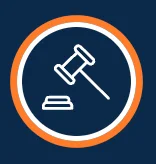A study published in Clinical Interventions in Aging reports that dementia patients have an increased risk of abuse in nursing home settings. While 44% of the elderly living in care homes are abused, only about 7% of cases are ever reported. Dementia patients may be especially vulnerable.
Our Greenville Nursing Home Abuse Lawyer explains why dementia patients are more at risk for abuse.
Why Are Dementia Patients At Risk in a Nursing Home?
Nursing home residents with dementia are at higher risk for abuse because they are dependent on caregivers, often lacking the ability to identify and communicate their needs. They may not remember when the abuse occurred. Caring for a person with dementia can be especially challenging, and staff may not have the training, resources, and personal skills to provide appropriate care.
Why Residents with Dementia Are at Higher Risk for Abuse
Dependence on caregivers
Dementia nursing home patients are increasingly dependent on caregivers. High dependency can mean that basic needs like bathing, dressing, and eating are difficult to meet.
Caregivers may be overwhelmed with the task of providing care. They may not be adequately trained or have the resources needed to meet the person’s ongoing needs.
Communication difficulties
A person with dementia may struggle to communicate effectively. They may have trouble choosing words, repeat themselves, or use incorrect words. A person may not be able to process the speech that they hear from others.
Over time, the person’s verbal communication may decrease. These communication difficulties can make a nursing home dementia patient unlikely to tell someone when abuse or neglect occurs.
Inability to recognize needs
A nursing home resident may be unable to recognize their needs. Without recognizing their needs, they can’t attempt to meet them. They are dependent on others, and it isn’t always easy to recognize a need in another person. Lack of self-awareness can make a person vulnerable.
No memory of what happened
When abuse or neglect occurs, the person may not remember that it happened. They may be questioned by family, staff members, nursing home regulators, or law enforcement. But with cognitive impairment, they may not be able to remember.
This can lead to a lack of accountability, and abuse and neglect may go undocumented. A dangerous situation may repeat itself or continue to exist because the patient doesn’t remember what happened.
Not being able to perceive danger.
Anosognosia occurs when a dementia patient cannot recognize their impairment. They may not appreciate that they have dementia and may not understand their vulnerabilities. Inability to perceive danger may lead to unsafe behavior.
Difficulty understanding and following instructions
An inability to understand or follow instructions can make dementia patients at higher risk for abuse. Care providers may not have adequate training in how to use simple language and clear communication with a resident. The result may be that the person doesn’t understand what they need to do for their safety. Plus, it may be easier for a caregiver to neglect the person than struggle to make directions understood.
Social isolation, which means less monitoring
Dementia patients in care facilities are often socially isolated. This may be necessary for safety. However, it can mean less monitoring. It can be harder to monitor each resident individually instead of in a group setting, and harder for caregivers to learn about the residents and recognize their needs. It may mean a decreased likelihood of someone else noticing when abuse occurs.
Challenges in physical security
Nursing home dementia care can be challenging. Keeping dementia patients safe means addressing their physical security in the facility. It also means preventing the resident from wandering away from the facility. The home may be understaffed, and care providers may not have the resources they need for security. This can lead to caregiver frustration. When caregivers become overwhelmed, they may resort to the use of restraints, overmedication, assault and battery, and other harmful tactics.
Uncooperative or aggressive behavior
Confusion and fear can prompt uncooperative or aggressive behavior in a dementia patient. The person may hit, throw things, resist physical help, and refuse to participate in personal care. A dementia patient may act aggressively because they are unable to communicate effectively in other ways. This aggression can leave them vulnerable to neglect because of caregivers not wanting to interact or abuse out of frustration on the part of a caregiver.
Types of Abuse Commonly Experienced by Dementia Patients in Nursing Homes
- Assault and battery
- Financial exploitation
- Inadequate fall prevention
- Social isolation
- Lack of tending to personal needs
- Poor nutrition and hydration
- Emotional abuse
- Being left sedentary for too long
- Wandering away from the facility
Risk Factors for Abuse in Nursing Home Dementia Patients
Risk factors for dementia patient abuse in a nursing home include:
- Poor training
- A lack of policies and programming to prevent abuse
- Understaffing
- Difficult working conditions
- Inadequate resources
Signs of Abuse in a Nursing Home Dementia Patient
- Unexplained bruises or broken bones
- Lack of access to the patient
- The patient does not want to be around a certain caregiver
- Sudden changes in health status
- A facility that is not secure
- Significant changes in the person’s daily routine
- Appearing disheveled, a lack of meeting personal care needs
What To Do if You Suspect Abuse of a Dementia Patient
If you suspect abuse of a dementia patient, call 911 if it is an emergency. You may report your concerns to staff members and make a report to the SC Long Term Care Ombudsman. It may be appropriate to address your concerns with law enforcement or Adult Protective Services.
How a Greenville Nursing Home Abuse Lawyer Can Help
A dementia patient who suffers abuse or neglect may have the right to compensation. A Greenville nursing home abuse lawyer can help you investigate and evaluate your options and can take steps to claim compensation.
Jordan Law Center is a team of experienced litigators who get results inside and outside the courtroom.
Contact
Call or message Jordan Law Center. Talk to our lawyer about your situation in a free consultation today.







“There is not enough GREAT THINGS I could say about Jordan Law Center.”